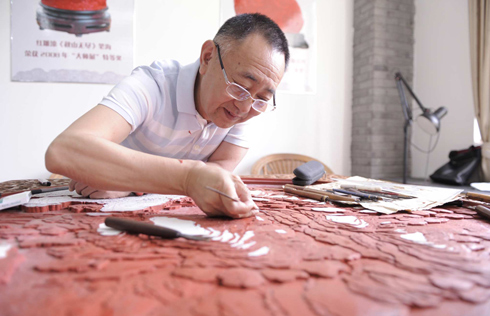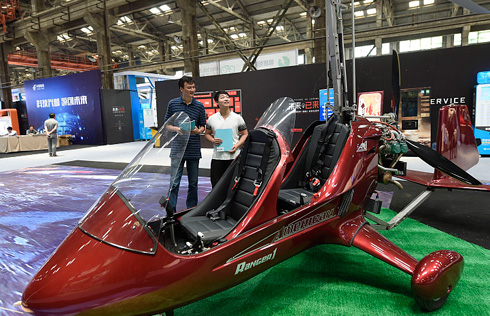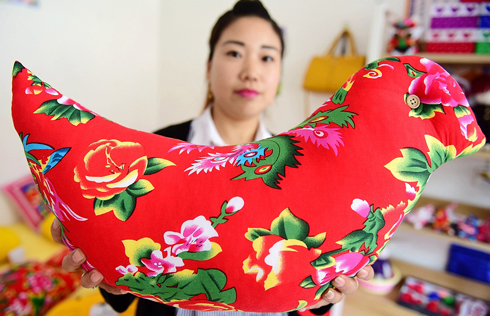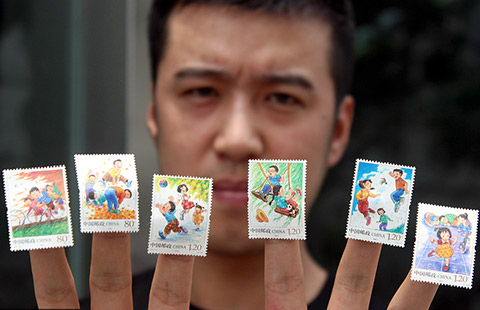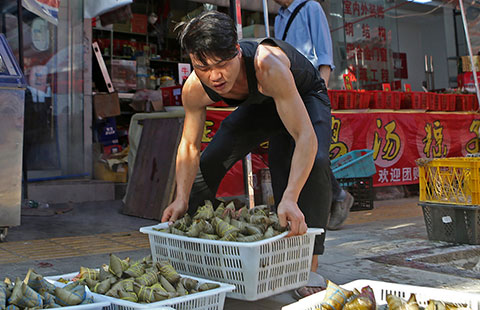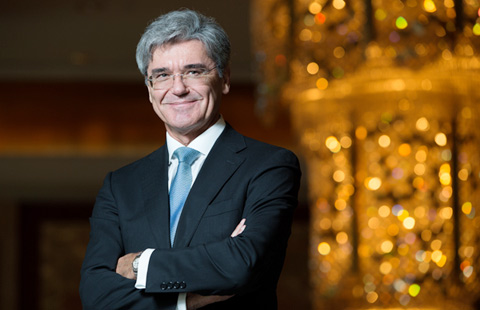Chinese fashion brand 1436 turns cosmopolitan
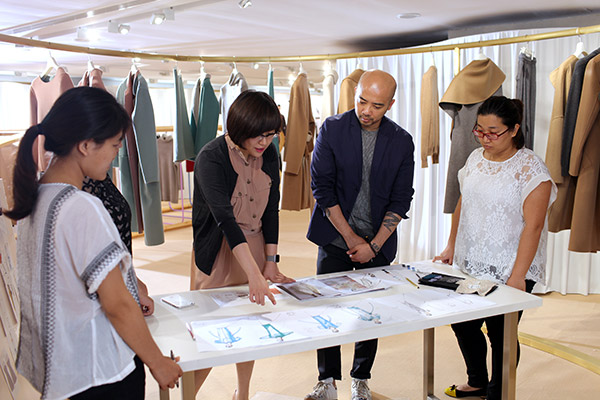 |
|
Wang Zhen (second from left), founder and president of 1436, discusses sketches for the styles of the new fashion season with other designers at the company's Beijing office in 2015. [Photo provided to China Daily] |
Inner Mongolia-based Chinese cashmere label expands overseas
The Chinese cashmere brand 1436, founded a decade ago, got its name from the fact that wool yarn is 14.5 microns thick and 36 mm long. Such cashmere fiber, the top standard in the world, is thinner than a quarter of hair's breadth. Only 2 grams of cashmere in every 1,000 grams meets such a standard.In September last year, 1436 opened its first boutique abroad. It shared floor space with luxury brands at Hankyu department store in Osaka, Japan. It was the sole Chinese brand on the premises.
Wang Zhen, founder and president of 1436, said the company has also established a design studio in Milan, Italy, as it aims to connect with international resources and markets, and further expand into the European market.
The brand also plans to launch more stores overseas at an appropriate time.
China produces more than 75 percent of the cashmere globally, and more than 90 percent of cashmere worldwide is initially processed in China. Chinese local brands account for only roughly 20 percent of the total.
"I grew up in the world of cashmere. We own very rare cashmere resources, and we would like the world to know that the top cashmere products are in China," said Wang, who is also the daughter of the founder of Erdos, a group that produces about one-third of the world's cashmere.
"Affluent consumer groups in China are emerging, and they demand top cashmere products. Our main consumers are young and affluent, have independent tastes, and pursue a high-quality life," she said.
In 2011, British designer Graeme Black, who worked with Giorgio Armani, Salvatore Ferragamo and Hugo Boss in the past, became the creative director of 1436.
Wang said Black has helped combine his inspiration and international mindset with exquisite cashmere production. He has also reinforced the brand's vision to become more cosmopolitan, and integrated the latest fashion elements into cashmere.
"We'll maintain an open mindset and invite more international designers to work at the company. We will also try to cooperate with some up-and-coming independent designers," Wang said.
Currently, 1436 has more than 40 boutiques. In March last year, the company launched its flagship store at Kerry Center in the Guomao area at Beijing.
In October 2014, the leaders who attended the Asia-Pacific Economic Cooperation meeting in Beijing wore the scarves and shawls of 1436. Wang said the brand has stood out among 347 competitors with its competitive products of high quality and fine craftsmanship.
Meanwhile, the brand has started to eye online stores and digital destinations targeting smartphone users. It is increasing its marketing efforts through social media, to adapt to the change in spending habits of Chinese consumers.
Yu Guangjun, director of the Institute of Economics at the Inner Mongolia Academy of Social Sciences, acknowledged the changes. In the past, he said, Chinese cashmere brands were known for their relatively low prices and large-scale production, thanks to low labor and feed costs.
"Now, such advantages have faded, with improvement in sheep variety, feeding pattern adjustment and a series of policies that limited production. Meanwhile, the younger generations of Chinese consumers are not that addicted to cashmere products like the older generations," he said.
"Globally, sales and demand are falling, and the high quality is a key factor to make brands stand out. And that's why the Erdos Group launched the brand 1436 to grab more global market share."





